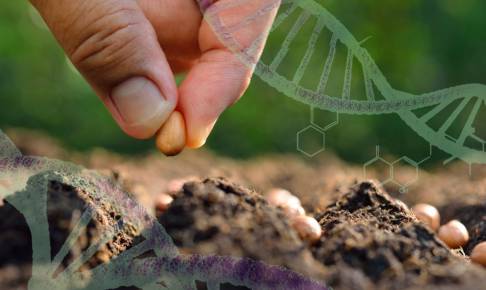CRISPR-edited high-GABA tomato approved in Japan
In Japan, a new genetically-engineered tomato, named “Sicilian Rouge High-GABA”, modified with CRISPR technology has recently been approved by a health ministry committee.
GABA (gamma-aminobutyric acid) is an amino acid that has various effects on the human body, one of which is lowering blood pressure, an important concern as cardiovascular diseases cause 17.9 million deaths per year, according to WHO. The tomato is a plant that has high concentrations of this amino acid and researchers from the Sanatech Seed Co. in collaboration with University of Tsukuba managed to engineer a plant with much higher levels of this molecule.
Where traditional gene manipulation and plant breeding failed to enhance levels of GABA in tomatoes, Sanatech Seed’s researchers used CRISPR/Cas9 genome-editing technology to suppress genes that downregulate GABA production to create the Sicilian Rouge High-GABA plant. Due to patent issues, for now this tomato is sold only to Japan’s home gardeners and not to big farms or companies.
Some regulatory organizations have pointed out that there has not been a detailed examination of the risks associated with this new tomato. The multifunctional role of GABA in plants mean that manipulating its levels may lead to unexpected metabolism alterations. Such changes may have unintended effects on consumer health, especially if the environment in which the plant grows is very different from that used during testing. This is particularly concerning given that the plant is sold only to home gardeners, whose garden environments and growing conditions vary widely.






















